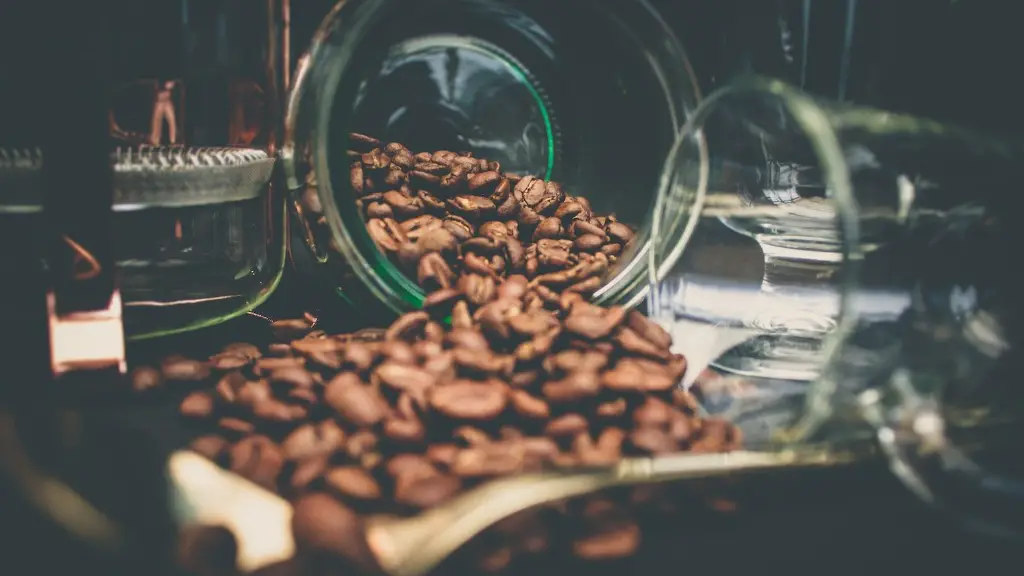Many wonder if drinking coffee during IVF treatments is acceptable. With the large range of conflicting advice from different sources, it is difficult to evaluate what is safe and what should be avoided. Coffee can have both positive and negative impacts on fertility, depending on how it is consumed and in what quantity. Thus, it is important to understand the effects of coffee and the different variables that influence how coffee affects individual fertility.
Starting with the basics, coffee is a complex mixture with many compounds that can have different effects depending on the individual and their particular history with coffee. The most notable compound in coffee is caffeine, a stimulant that can give an energy boost and also lead to caffeine addiction. Caffeine is a psychostimulant, which means it can increase alertness and concentration. Caffeine also increases the production of stress hormones that can affect the body’s response to stress, including fertility.
In general, studies have found that moderate caffeine intake has no adverse effects on fertility. In fact, some studies have linked moderate intake of coffee to improved chances of conceiving. However, an important piece of information to consider is that not all studies are consistent in their findings. Some studies have found that caffeine can have negative effects on fertility, while others have found no scientific association between caffeine and fertility. Thus, it is difficult to draw definitive conclusions from this data.
For women undergoing IVF, the risks and benefits of drinking coffee should be carefully weighed. Women undergoing IVF may need to limit their caffeine intake to avoid putting too much strain on their bodies. Caffeine can interfere with hormones, disrupt sleep, and increase stress levels. Caffeine can also have a negative effect on blood sugar levels, which can be problematic during fertility treatments.
It is important to note that caffeine is not the only compound present in coffee that can affect fertility. Coffee also contains antioxidants that may help to boost fertility. The antioxidants in coffee can help to reduce inflammation and protect against oxidative stress, both of which have an effect on fertility. Thus, while the amount of caffeine should be monitored and limited, it may still be beneficial to include some coffee in the diet of individuals undergoing IVF.
The best advice when deciding to drink coffee during IVF treatments is to talk to a fertility specialist. Each individual’s fertility needs and circumstances are different, and a fertility specialist can offer customized advice and guidance. If a woman does decide to drink coffee during IVF treatments, it is important to monitor the amount of caffeine consumed and to be mindful of any potential side effects.
Effects of Caffeine During IVF
Caffeine is a central nervous system stimulant and, at high doses, can interfere with sleep, increase anxiety and stress levels, and cause sleep deprivation. All of these factors can have a negative effect on fertility. Too much caffeine can also affect the levels of hormones, such as progesterone, which is essential for healthy reproductive functioning. Studies have found that too much caffeine can reduce fertility in both men and women, regardless of whether the couple is trying to conceive naturally or through in vitro fertilization (IVF).
To reduce the potential risks associated with drinking coffee, it is important to limit the amount of caffeine consumed and to stick to moderate amounts. For example, if an individual drinks one 8-oz cup of coffee daily, it is considered moderate. It is also important to be aware of the other compounds present in coffee and to be mindful of any potential interactions between these compounds and the medications or treatments prescribed for IVF. Finally, it is recommended to drink coffee without added sugar or cream, as these ingredients can have a negative impact on fertility.
Coffee and Stress Levels During IVF
Stress reduces fertility and increases the risk of miscarriage. Women who are undergoing IVF can feel stressed as they balance these treatments and their daily lives. Caffeine acts as a stimulant and can lead to increased anxiety and stress levels if not monitored closely. Therefore, it is important for a woman undergoing IVF treatments to be mindful of how much caffeine she is consuming and to make sure that her stress levels are kept under control.
There are some helpful techniques that can be used to manage stress and anxiety. Exercise can help to reduce stress, as can getting enough sleep, eating a healthy diet, and drinking plenty of water. Reducing caffeine intake and managing caffeine cravings is also essential for managing stress levels during IVF.
It is important to remember that stress reduction is a critical part of fertility and IVF treatments. So, if a woman is considering drinking coffee while undergoing IVF treatments, she should think carefully about whether or not the coffee will help to manage her stress levels or make them worse.
Vitamins and Supplements during IVF
In addition to limiting caffeine intake, women undergoing IVF treatments may also consider adding certain vitamins and supplements to their diet. Vitamins and supplements such as folic acid, vitamin B6, guaifenesin, and L-arginine can all help to promote fertility and pregnancy. However, it is important to consult a doctor before taking any supplements, as some may interact negatively with medications or treatments prescribed for IVF.
Women undergoing IVF may also consider taking other fertility boosting supplements such as omega-3 fatty acids and probiotics. Omega-3 fatty acids have been shown to improve fertility in both men and women and reduce inflammation. Probiotics can also help to improve fertility by regulating the hormone balance and promoting a healthy reproductive system.
In addition to taking vitamins and supplements, women undergoing IVF treatments should also prioritize eating a nutritious, balanced diet that is rich in fruits, vegetables, and healthy proteins. Eating a healthy diet can help to support overall health and fertility, in addition to reducing stress levels.
IVF and Mental Health
Undergoing IVF treatments can be emotionally draining and stressful. It is important to dedicate time to taking care of one’s mental health in addition to the physical aspects of IVF. Practices such as yoga, meditation, and journaling can be helpful in managing stress and anxiety associated with IVF treatments. It can also be beneficial to connect with support groups or talk to a professional therapist.
Talking to a therapist or counselor can be particularly beneficial during IVF treatments. A therapist can provide support and guidance throughout the process and help with any emotional issues that may arise. A therapist can also help to ensure that the couple is managing their stress levels and staying emotionally balanced.
It is also important to take time for self-care during IVF treatments. Self-care can mean different things to different people, but can include activities such as exercising, reading, listening to music, or even taking a warm bath. Taking time for self-care can help to reduce stress and anxiety and improve overall mental and physical health.
Conclusion
Drinking coffee during IVF treatments can have both positive and negative impacts on fertility. It is important to consult with a fertility specialist to determine the best approach for individual circumstances. Additionally, other factors such as stress management, adequate nutrition, and self-care should also be incorporated into IVF treatments for maximum health benefits.




